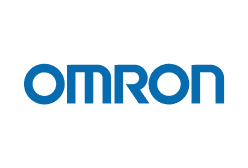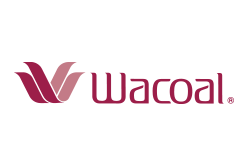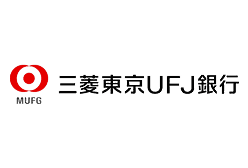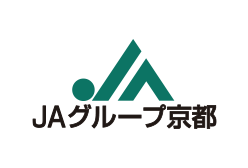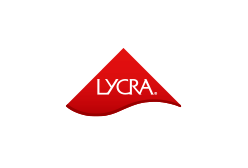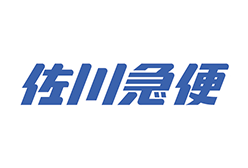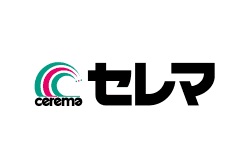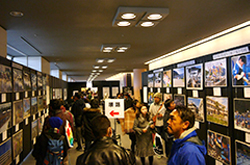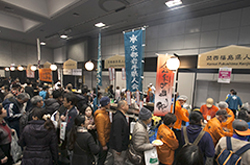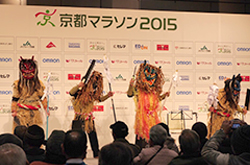Main Concepts

Do you know the phrase "DO YOU KYOTO?"
This is the message we are transmitting from Kyoto to the world. Meaning "Are you taking actions to save the environment?", it was created in the wake of the Kyoto Protocol (an international treaty adopted at COP3, the third session of the Conference of Parties to the UN Framework Convention on Climate Change which was held at the Kyoto International Conference Hall in 1997, effective from February 16, 2005).
The name of the city is now widely known as the birthplace of the Kyoto Protocol and is frequently associated with environmental matters. Now, the word "KYOTO" is being used worldwide to denote something more than the name of a city -- "doing something good for the environment."
In 2016, the Kyoto Marathon will be held again under the main concept of "DO YOU KYOTO? Marathon", denoting many different aspects of consideration for the environment.
Major initiatives
Water points will not use plastic bottles but will supply tap water in paper cups (saving about 20,000 x 2L plastic bottles) .
Kyoto's tap water meets the world's highest standards.
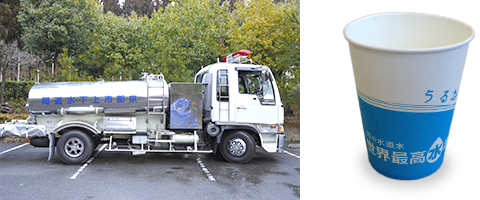
At all water points, we will supply water for those runners who prefer to carry their own bottles.
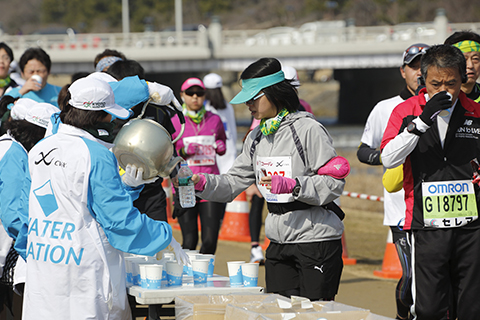
Participant lists and finisher records will be searchable online instead of being printed out (saving about 320,000 sheets of A4 paper).
Marathon events are accompanied by greenhouse gas (carbon dioxide) emissions, from the use of electricity at the event sites through combustion of wastes, participants' travel within the city (using vehicular transportation), etc. By offsetting these carbon emissions using the city's "DO YOU KYOTO? Credits," we aim to realize a marathon event with, effectively, zero carbon emissions.
*Carbon offsetting is a method of compensating for emissions which are generated even after doing what we can do to reduce emissions in our daily living and economic activities, by investing in emissions reduction activities which will balance them.
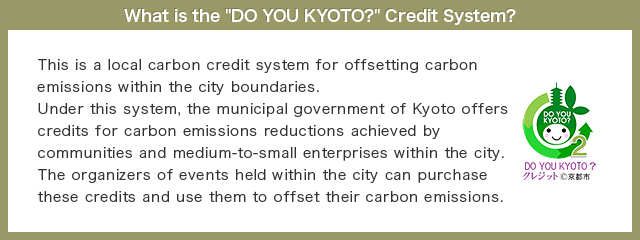
Kyoto City officially recognizes and registers "Eco Events," which promote and implement all of the "five points for making events more eco-friendly." Ever since the first event, all Kyoto Marathon events have aimed at eco-friendly organizations and have been officially recognized as "Eco Events."
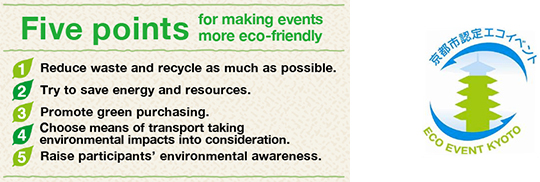
For keeping warm until the starting gun, we ask runners to bring and wear old sweaters or jackets that they no longer need. We will collect and reuse or recycle these garments. In addition, we will also collect unwanted clothing from runners and supporters at the event site.
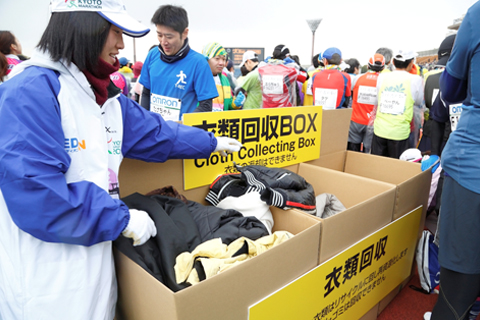
The city will designate the day of the event (February 21, Sunday) as "No My Car Day" and call for use of public transport instead of private cars.
* Under its landscape policy, the city of Kyoto has few multi-level crossings on streets, and many of its residents work within the city.
If people from within and outside of the city use cars as usual during several hours of city-wide traffic control, large-scale traffic jams are likely to occur. Therefore, to ensure smooth traffic flow for emergency vehicles and transit buses and to minimize impact on civic life, we seek your kind cooperation in avoiding use of private cars on the day of the event.
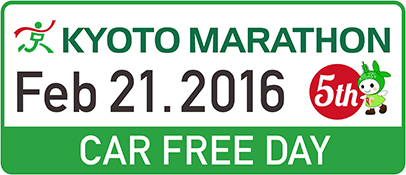

The inaugural Kyoto Marathon took place on March 11, 2012, marking the first anniversary of the Great East Japan Earthquake. With prayers for the lost lives and wishes for reconstruction in mind, more than 500,000 people, including runners from within and outside of Japan, organizing staff, volunteers, and supporters cheering along the course, united to deliver a strong message in support of reconstruction efforts: to give "energy from Kyoto through sport." The 5th Kyoto Marathon, in 2016, will once again be focused on supporting reconstruction efforts, and not leaving the suffering communities to walk alone.
Major initiatives
Free entry will be available for runners from regions affected by the Great East Japan Earthquake (for 200 marathon runners and 60 Pair-Ekiden runners in 30 pairs). We will ask, on a voluntary basis, each of those runners to wear a purple ribbon on either a shoulder or on the chest, to encourage warm support from spectators and fellow runners. (Ribbons will be available at the runner check-in point.)
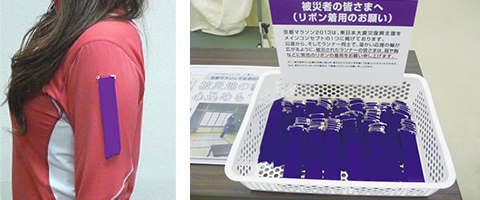
We will collect voluntary donations (JPY500 per share) from runners with their entry fees plus donations at the event site, and will send the collected money to the affected regions.
Kyoto Marathon 2015 produced donations totaling JPY10,328,470 for the affected regions.
As a symbol of our support for reconstruction efforts, runners, organizing staff and volunteers will wear bibs carrying messages supporting reconstruction or stickers on which calligraphy of a kanji "Kizuna" (meaning bond) drawn by Seihan Mori, chief priest of Kiyomizu-dera Temple, will be printed.
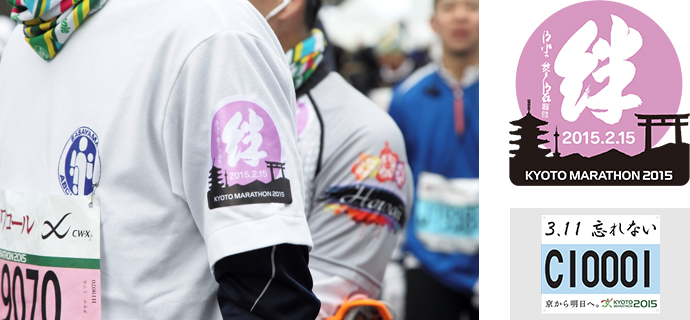
Before the starts of races, all participants will observe a moment of silence to remember the victims of the Great East Japan Earthquake and to express their support for reconstruction efforts.
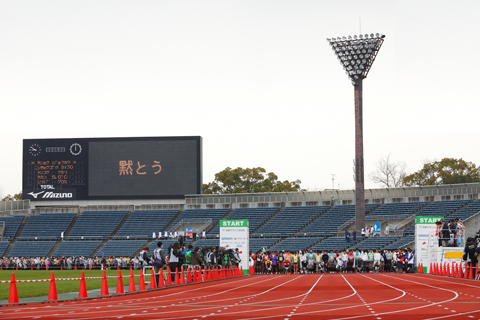
Activities for assistance for reconstruction efforts will be held on February 19 (Fri.) and 20 (Sat.) in the Okoshiyasu Welcome Square at the runner check-in point.
The Kyoto Marathon Executive Committee will send five runners from Kyoto Marathon 2016 (to be held on Feb. 21, 2016) to the 26th Sendai International Half Marathon (scheduled for May 2016) to encourage exchange with local people and closer understanding of the situation of the communities affected by the 2011 disaster. Participants will be selected by lottery from among all contestants including Pair-Ekiden and Wheelchair Race athletes, excluding free-entry contestants from the affected areas and overseas residents. In expectation of greater economic benefits for the affected areas, travel costs for one accompanying person per selected runner will also be paid by the Kyoto Marathon Executive Committee.
To support reconstruction efforts in Tohoku, runners and staff members will wear bibs and stickers printed with Kyoto City’s environment mascot Eco-chan and a kizuna (bond) logo created by Seihan Mori, Chief Priest of Kiyomizu-dera Temple.
Contact
- Kyoto Marathon Entry & Hotel Reservation Desk
-
JTB Sports Station
7F JTB Bldg 2-1-25, Kyutaro-machi, Chuo-ku, Osaka, 541-0056 Japan
TEL: +81-6-6267-5163(hours 9:30-17:30; closed Sat.,Sun.,holidays)
E-mail: jtbss@west.jtb.jp



